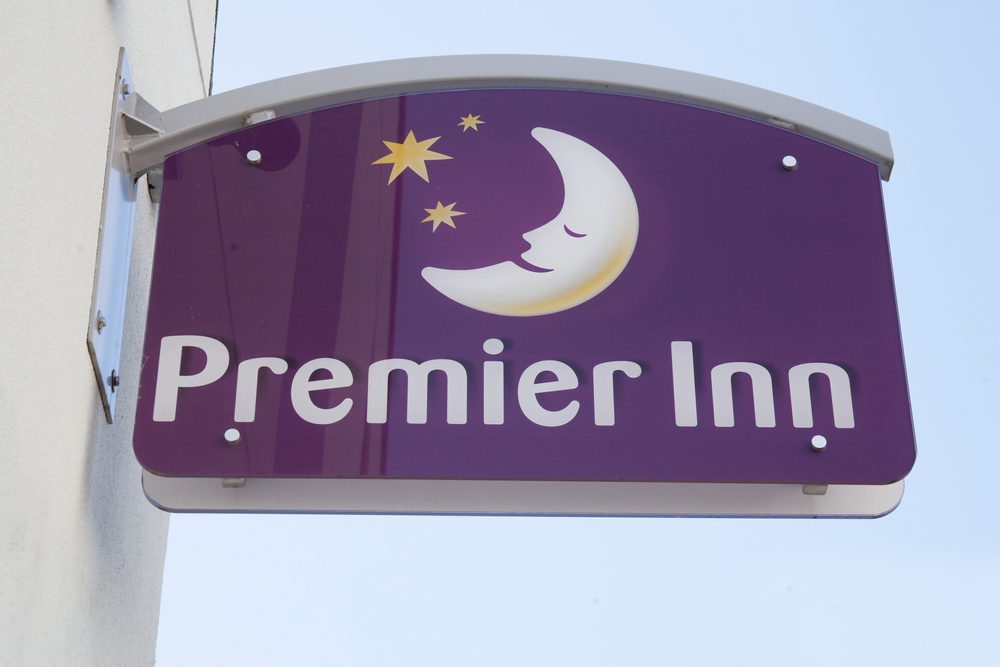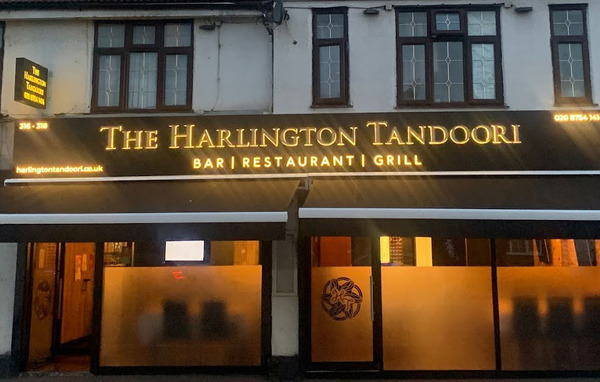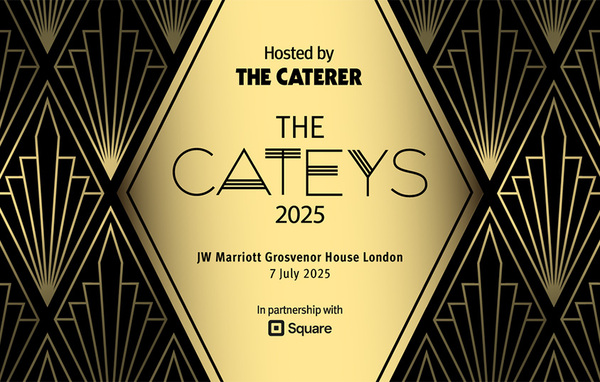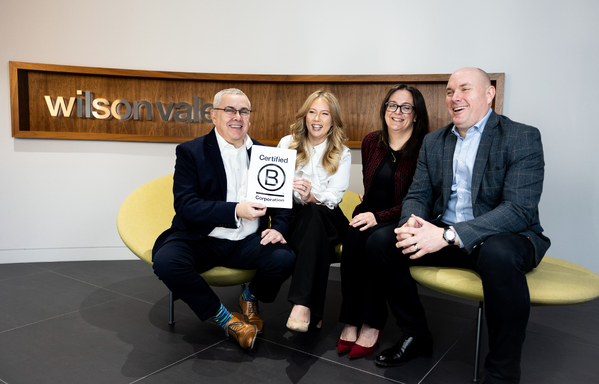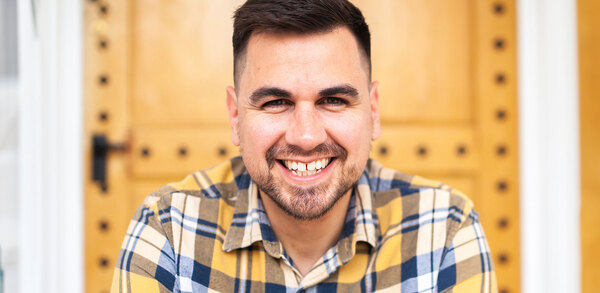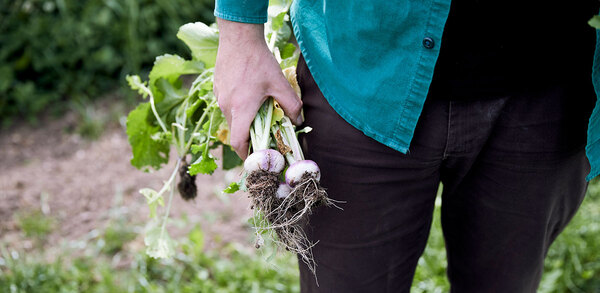Trash talk: Skye Gyngell on easy ways to drop single-use plastic
Single-use plastic has been a hot topic of conversation for months, with many claiming it to be a necessity in kitchens. But at Spring, Skye Gyngell has managed to fully eradicate it. Emma Lake finds out how it was done
At the beginning of 2018 Skye Gyngell set herself the challenge of ridding her restaurant, Spring, in London's Somerset House, of single-use plastic.
After listening to a talk by Plastic Planet co-founder Sian Sutherland (see panel), Gyngell looked around the restaurant and saw plastic everywhere. She acknowledges that the size of the problem facing the planet led her to "catastrophise", but 10 months on, Spring has successfully banished single-use plastic, an achievement that the chef says was, on reflection, "incredibly easy".
Gyngell started by getting her brigade behind her. She offered staff pizza and beer as an incentive to come into the restaurant on a Sunday to watch the short version of the film Plastic Ocean and brainstorm what they could do.
The chef says: "The best thing we did was getting everybody involved so they felt it was their mission and not just Skye's mission."
The restaurant's approach was to turn off the tap rather than looking at recyclable or even biodegradable products. The reality is that even if these items are placed in the right bin, most will end up in landfill as there is not the infrastructure to meet demand.
Staff from the kitchen, bar and front of house led their departments in highlighting examples of plastic use and researching alternatives. Like so many others who have watched Blue Planet II or A Plastic Ocean, the Spring team embraced the challenge at work and home, with Gyngell saying many would come in speaking about wooden toothbrushes or phone covers they had purchased.
At Spring, kitchen favourite clingfilm was high on Gyngellâs list after the restaurant went through its back orders and found that it used some 3,600km a year â" enough to stretch from London to Cairo. The chef also discovered that the restaurantâs 30,000 paper ice-cream cups â" which, if stacked, would be three times the height of the Shard â" had a thin layer of plastic, meaning they were not actually recyclable.
Making a change
The chef says that when she started searching, she found that alternatives were available. Eradicating clingfilm started with the purchase of lids and labels. Rather than using clingfilm to cover pots and gastros, a lid was popped on followed by a label. Other food items are wrapped in Beeâs Wrap, a natural, reusable and compostable alternative made from cotton and beeswax.
She says: âWe went cold turkey. Buying the lids was a real penny-drop moment for us. We had been doing really wasteful things because we werenât thinking about it. We would pile up our tablecloths and napkins before sending them back and we would wrap them in clingfilm. At the end of service we would reach for the clingfilm, cover all the gastros and put them in the fridge â" we donât need to do that, just put a lid on and label it.â
Ceramic ice-cream pots were brought in, the restaurantâs soap supplier has been changed, plastic straws are out, and staff now drink from stainless steel mugs in the kitchen.
Suppliers were also told that plastic or polystyrene wouldnât be accepted and the majority complied. Gyngell says: âWe just rang them up and said weâre only going to accept cardboard â" most people want to work with you and realise everybody has to do something.â
One challenge Gyngell has not yet overcome is finding an alternative to the plastic sheets used to wrap the delicate leaves harvested from Fern Verrow farm, with which the restaurant has an exclusive partnership that sees it take everything that is harvested.
She explains: âThe leaves do not like the fridge and do not like temperate weather. Basically, they donât like not being in the ground. The only thing that works is laying them on plastic and tucking them in. Weâve set up a washing line downstairs and we wash the plastic sheets, fold them and return them to be used again.â
Single-use plastic has been the focus of Gyngellâs 2018 challenge, but the restaurant aims to become plastic-free. Not wanting to âthrow the baby out with the bathwaterâ, the team will replace longer-use plastic items with non-plastic alternatives as they break.
The chef is encouraging others to look at their businesses and see what they can do. At the start of 2018 there was a big drive to cut down on single-use plastic in the hospitality industry, which saw the mass eradication of plastic straws, but many businesses have left it there.
Gyngell explains: âItâs the power of one. You may think: âWhy should I bother? What difference can I make? Iâm only one person.â But one plus one, plus one, plus one â" the power of one is really powerful. We have to do it.
âI think really, if nothing else, it makes good business sense. Sustainability is a very hot topic and I donât think that any of us, whatever business youâre in, can not have a sustainable footprint as part of their ethos. I think thatâs expected. A lot of people jumped on the bandwagon in the beginning and then maybe it became difficult and people dropped off. It did cost us money â" between £2,500 and £3,000 â" but itâs been incredibly easy. I thought it was going to be impossible. I was completely catastrophising, but I actually now feel itâs doable to clean up the oceans.â
A Plastic Planet
Skye Gyngell was driven to act after listening to a talk by Sian Sutherland, the co-founder of campaign group Plastic Planet. The group was founded in January 2017 with the goal of âturning off the plastic tapâ.
It has particularly addressed the issues of plastic in the food and drink industries, leading the call for supermarkets to have plastic-free aisles, which has received the backing of prime minister Theresa May.
Plastic Planet has been vocal in busting the myth that plastic can be â" and is â" widely recycled. Since the 1950s only 9%Â of the 6.3 billion tonnes of conventional plastic waste has been recycled, compared with 90% of aluminium. Plastic is difficult to reclaim, often contaminated, and it doesnât always make financial sense to recycle it.
Plastic Planet has also highlighted that more than 2.7 million tonnes of plastic waste were sent by Britain to China and Hong Kong between 2012 and their import ban in January this year.
2019 Acorn Scholarship open for entries: nominate your high-achiever now!



